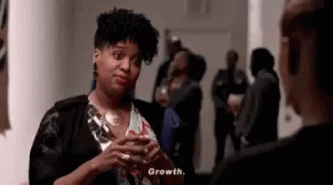Stop Seeking Instant Gratification & Spend More Time With Your Draft
Writing can get pretty lonely. It’s just you, your imaginary friends, and a computer for hours on end. And no matter how often we talk about our WIPs over coffee or yell about them on Twitter until we have something to show for all our blood, sweat, and tears the odds of us showing them to anyone are slim. So once we do finish a WIP it’s no surprise that we immediately want to show it to people and hear what they think. We want to know what they liked, where they were confused, and ultimately how we can improve this thing we’ve invested so much of our time and energy into.
So we alert the troops. We email it to folks in our writing groups. We submit it for this week’s workshop. But what we really need to do is hit the save button, power down the computer, and let that WIP sit.
During my recent interview with mystery writer Art Taylor, we spoke a lot about the advantages of having some serious alone time with your draft before letting others read it. One of the main reasons for this is that, usually, we already know where many issues reside and where we need to focus our attention during revision.
Getting feedback on a draft shortly after completing it only reinforces what you already know. Also, you may get advice that pushes you to take the piece in a completely different direction. I can’t tell you how often I’d listen to my peers go back and forth in workshops about what they wished happened, what would be cooler, or felt like a more satisfying ending. They’ll make you question everything about your WIP—trust me—and because it’s still an early draft you'll feel more inclined to heed their advice and take your story into left field.
We need to pump the brakes on sharing things the minute they’re finished, and find other ways to appease our desire for instant gratification.
This can be a hard thing to do. Especially since we live in a perpetual state of instant gratification. Ordered something off Amazon? It’ll arrive in two days. Want to see a loved one who’s halfway across the world? Tap an app on your smartphone. Completed a homework assignment? By the end of the week, you’ll have a grade. Nowadays, for every decision, we make and action we take there’s an immediate response and/or consequence.
Personally, I like bursting into my sister’s room (or texting her in all caps) to announce I’ve completed a project. But the reason I like telling Kassie these things is because she’s not a writer and she’s a very selective reader. So the chances that she’ll want to (1) read my work, (2) offer advice, and/or (3) ask craft-related questions are low—even if I was to ask her to take a look. Instead, she’ll usually respond with something along the lines of:
Great, carry on.
How many people did you kill this time? Did they use a clever?
Cool! But can you come back later? I’m watching Supernatural and Dean’s going apeshit.
There aren’t any fireworks. There’s no pat on the back. But here’s the thing: Writing isn’t about stroking your ego. It’s not about instant gratification. It’s about having the patience to write the best damn story you can.
So rather than send your WIP right after you type “The End,” take a step back and prepare to move into the editing phase of your writing process. Plan to take your draft as far as you can, and edit for as long as you can on your own. If you just spent 200+ hours writing that WIP without anyone's input, don’t you think you owe it to yourself (and your WIP) to spend at least half that time editing without input?




